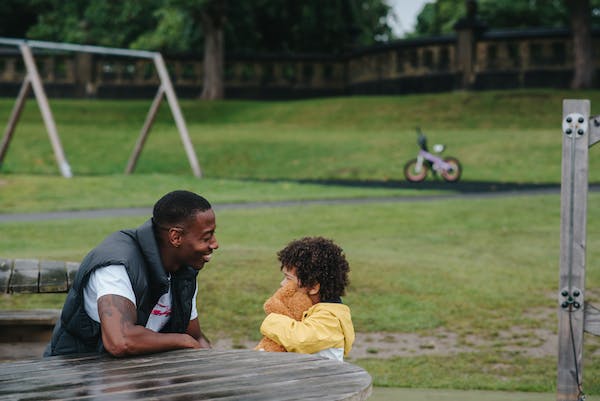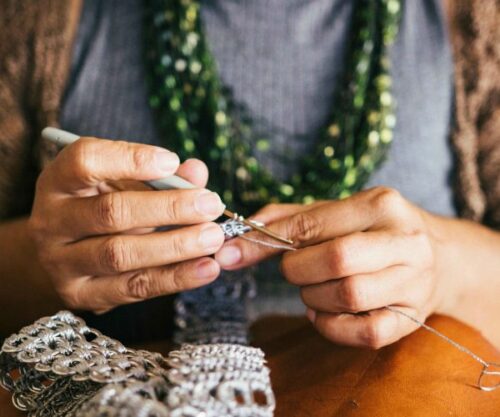
When Nomsa Celiwe* started a relationship with her then boyfriend, she thought that everything would run smoothly. Even when she found out that he was soon to be a father, she wasn’t worried. Themba Celiwe* had revealed from the onset that his ex-girlfriend was pregnant. But, Nomsa quickly learnt that having a stepchild was not going to be easy. A few months after the baby was born, Themba introduced Nomsa to the mother of the child.
‘ had mixed emotions because I had my own misconceptions about her,’ she says. And when they met, Nomsa did feel that the mother was cold towards her, and not welcoming. Life coach and prophetess Cindy Mabaso says transitioning into a step-parent role is not easy, but it is important that your relationship is built on love. ‘The transition is easy when there’s love for the spouse.’ Relationship expert Paula Quinsee says while being a step-parent is not easy, it is important to understand your role in the child’s life.
‘While you may not be their biological parent, you do still have some authority as the adult in the household, and they need to respect this just as you need to respect them. Both partners must discuss upfront the role the step-parent will play in the house and children’s lives. That way, owards her, and not welcoming. Life coach and prophetess Cindy Mabaso says transitioning into a step-parent role is not easy, but it is important that your relationship is built on love. ‘The transition is easy when there’s love for the spouse.’ Relationship expert Paula Quinsee says while being a step-parent is not easy, it is important to understand your role in the child’s life.
‘While you may not be their biological parent, you do still have some authority as the adult in the household, and they need to respect this just as you need to respect them. Both partners must discuss upfront the role the step-parent will play in the house and children’s lives. That way, everyone knows where they stand and what is expected of them. Also, you are blending two different households into one, so there is going to be a phase for everyone to find their feet and settle into sharing each other’s space, ideas, opinions, likes and dislikes.’
WHEN THEIR MOM HATES YOU
While it is challenging to build a relationship with your step-child, when the other parent doesn’t like you, Cindy advises that you understand your role. ‘You will always remain a step-parent. So, it is important not to get muddled in energies that would zap the life out of you,’ she says. Paula adds that it is natural for there to be some resistance in the initial phase of a blended family. ‘Try to understand that this can often be due to underlying insecurities or parents feeling threatened that they are going to lose their children to you or that the kids are going to like you more than them.’ In the beginning stages, openly discuss routines, schedules, etc. ‘Make sure that the child’s best interests are at the centre of everything. If you’ve tried different ways to make it work and there is still no middle ground, stick to what has been agreed up on. Have firm boundaries in place and ensure that aggravating situations are kept to a minimum. Where possible, reduce communication to email or messages and keep it short and factual to avoid emotions getting in the way,’ she advises.
WHEN THE CHILD DOESN’T LIKE YOU
Building a relationship with your step-child might even be more difficult if they don’t like you or if the age difference is not that far off. When Thabisa Mberane* (39) met her husband, he had a teen son. ‘One of the challenges was a lack of respect from my stepson. I also wasn’t old enough to be his mother.’ She had to make her husband understand that his son still needed to see her as a mother figure. While she sometimes felt like giving up, she had to remember that she loved her husband, which meant that his son was part of the package. Their relationship is now much better.
IF THE KIDS DON’T GET ALONG
Building a relationship when your step-children don’t get along with your kids can be challenging. Paula says there might be a number of reasons for this. Things such as a difference in the age gap, different interests, insecurities and jealousy can have a negative effect on how the kids relate to each other. So, find ways to diffuse the tension. ‘If you’ve tried several ways but nothing works, you may just need to accept this. If all else fails, be consistent in your interaction and engagement so that there is no perception that they are being treated differently or one made to feel more special than the other. At the end of the day, you can’t force the kids to like each other. But, they can still be respectful towards each other, ensuring that they understand what this means and that disrespectful behaviour won’t be tolerated,’ she explains.
HOW TO CREATE UNITY
Although Nomsa had a strained relationship with her step-child’s mother, she understood how important it was for her to be part of their life. This became even more important when she and her now-husband Themba had their own children. ‘I grew up not knowing my biological father’s children until later in life, and I didn’t want the same thing for mine,’ she says. She had to put her feelings aside and put the children first; she reached out to the mother, although they had a bumpy start. This is because the first time she reached out, she was ignored. But, she kept trying and it took a few years before she eventually agreed to meet up. They then started talking and finding ways to make things work for the sake of the children. ‘We now get along, and allow the kids to spend time together.’
She advises other step-moms who might be in a similar situation to put their feelings aside. Cindy agrees that as a step-parent, you should focus on building the family, adding that it is important to never focus on the reasons the father broke up with your stepchild’s mother. Instead, understand that both are the biological parents, so you must encourage the children to have a relationship with their mother. ‘Deal with the children in the full understanding that you are not there to replace their mother. This helps so that they aren’t caught up in your unspoken insecurities if any, or proving that you are better than their mother.’
BUILDING A HEALTHY RELATIONSHIP
When building a healthy relationship with your stepchild, Paula advises that you be fair. When blending a family, create a blended environment (us, we and ours) where there is one set of rules for everyone to live by. This gives a sense of fairness and everyone being treated equally. Discuss behaviour that won’t be tolerated, household chores and age-appropriate decisions. Make an effort to create family time to build the collective bond. For example, make dinner family time where you all share your day and build relationships. Find activities that cater to everyone’s needs and interests. It’s equally important to have alone time with each child to build individual relationships. Also, both partners must support each other, and present a united front to the collective kids.




